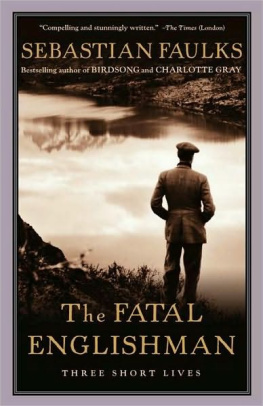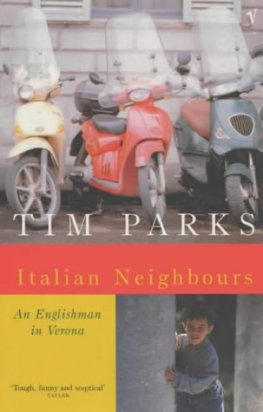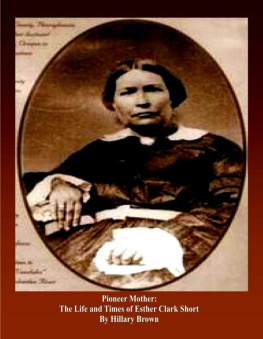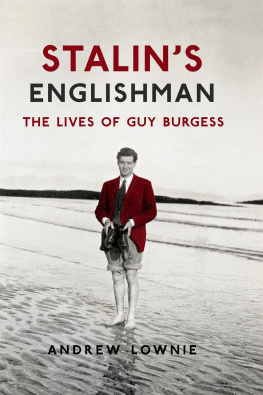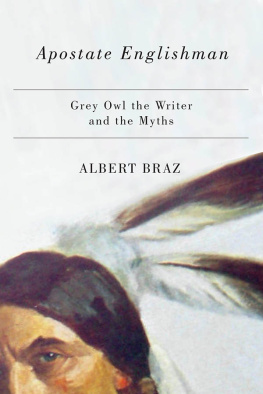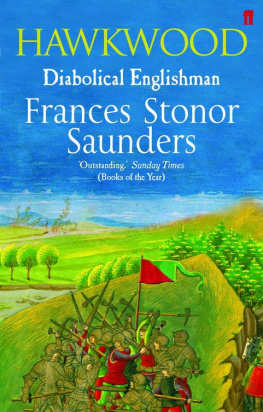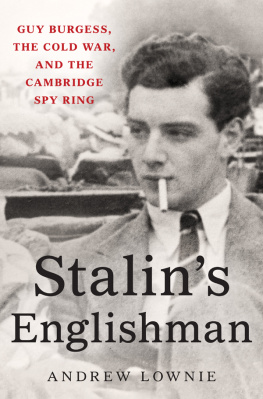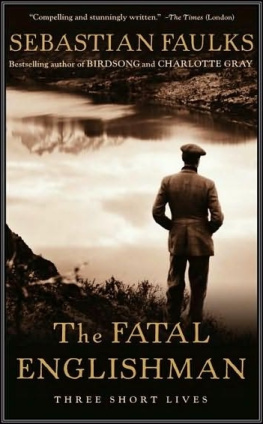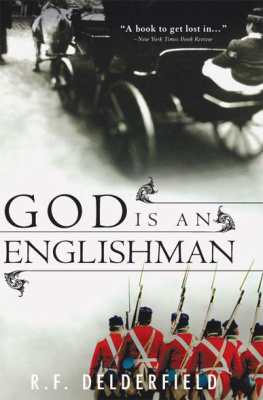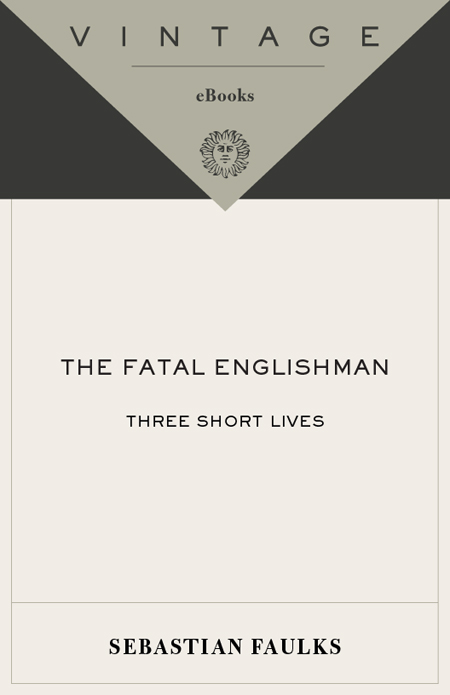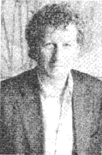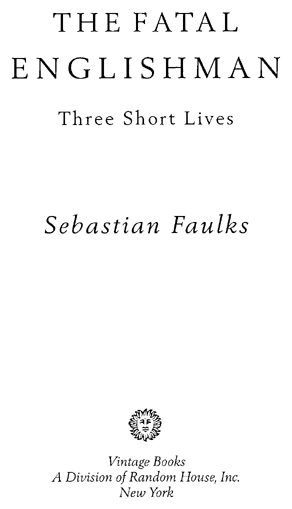Unusual, fascinating and interlocking in the oddest ways.
Superb . A mystery story of rare narrative power. Faulks brings to these portraits the exquisite detail which made Birdsong so evocative. This is biography written with that revealing sense of the moment which marks good fiction.
This is the most wildly exciting book that Ive read for a long time, and on a great theme: how the failures of Britain in the twentieth century have seeped into the souls of its countrymen. Its a classic.
Brilliantly described. A perfectly constructed narrative.
Extremely well-written. Faulks describes the three heroes manqus with sympathy and understanding. He has produced three excellent mini-biographies.
I have always thought that good biographers could write excellent novels. Now I have to admit that an excellent novelist has written a good biography. The Fatal Englishman is a subtle, original and exciting book.
AUTHORS NOTE
By chance I read a book about a young American who had been by so far the outstanding character of his generation as scholar, athlete and personality of ambitious charm that his graduation from Yale in 1957 was covered by Time magazine, while his contemporaries selected the jobs he would give them when, not if, he became President. Yet after a glorious start, his career stalled. The book (Remembering Denny by Calvin Trillin) was an investigation into what went wrong. The subject ended up committing suicide, and much of his problem seemed to stem from the fact that he could not accept his homosexual desires. Had he been born a few years later, the author implied, he would have encountered no such problems.
The book made me think that young or short lives are more sensitive indicators of the pressure of public attitudes than lives lived long and crowned with honours. The stories of young people who delight parents and friends with their talents have a concentrated significance in their beginnings, and in their premature ends there is a natural poignancy that brutally epitomises the disappointment that is also common but less evident in longer, duller lives.
Three such lives, each done at the length its span naturally required (a third of a life, a third of a book) that might well seem full enough to take away the sense of so what that would cling to a single short life. And then if perhaps the subjects actually had achieved something interesting and if they were to come from different parts of the century and so have lived against a different public background and thus illustrate the impact of changing attitudes and preoccupations over a long period
This book was originally called The Artist, the Airman and the Spy. It is, after all, three separate biographies: the lives of three people who never met. It seemed fair that the title should not only recognise the subjects individuality but also emphasise the defining importance of work in each mans life.
As I researched and wrote these three lives, various links between the three characters and various common themes emerged, none of which I had known about before I had started. This obviously encouraged the urge towards unity that finds its best expression in fiction, when the events can be shaped and patterned to echo the themes, while the characters can be made, within the limits of their realistic capacities, to behave in a way that adds a further level of harmony.
I tried to resist this urge. Having allowed it to dictate a new title, which stressed the characters similarities, I wanted to remain faithful to their differences. The lives of real people, unlike those of fictional characters, seem to exert a small but constant outward force away from order. So while I attempted, as gently and as truthfully as possible, to shape the events of their lives into some comprehensible pattern, I tried also to respect their individual energies, which seemed to push in the opposite direction, back towards singularity: the artist, the airman and the spy.
I have occasionally used the words England or English where some readers might have expected Britain or British. This is not because I imagine they are interchangeable, but because I accept that there is a difference.
Christopher Wood
O ne day in the spring of 1921 a beautiful young Englishman set off for Paris to become the greatest painter the world had ever seen. His name was Christopher Wood and he was nineteen years old. Until he took the boat for Calais on 19 March he was working for a fruit importer in the City of London. He was the son of a doctor in the North West of England, and his sudden disappearance to France confirmed his familys worst fears. Although Christopher wore shirts from the best outfitters in Jermyn Street, was well-mannered and polite to his parents, he seemed to have no understanding of middle-class convention. Some combination of circumstances had combined with a fierce streak in his character to make him wild and ambitious. He was determined to be a painter, and the intensity of his desire was frightening to his parents.
Dr Lucius Wood and his wife Clare had two children: Christopher, whom they knew as Kit, and Elizabeth, whom they called Betty. As a child, Kit had his hair cut in a bob and wore smocks. So did Betty. The family was relatively well off; the parents believed in God and the children believed in Father Christmas.
One December Kit wrote:
My dear father Xmas, I want a new good yacht and I want it to be all hollow inside and gun and a top And Betty a big doll and a gun And I want a very sparp chissel and a good screw driver and a good peaint box and mother wants a nice comfy bed With love from Kit and Betty Wood.
He always knew what he wanted, and in his childhood he almost always had it. His mother was devoted to him and he to her. He would gather crocuses for her birthday on 25 March and she repaid him with her doting indulgence. Clare Wood came from a Lancashire family called Arthur on her fathers side, and a seafaring Cornish family called Pellew on her mothers; Kit liked to think that the sea, and boats, were in his blood. Dr Wood was a general practitioner. He was a less demonstrative person than his wife and took a detached view of his sons early enthusiasms. He called him Snodgrass after the would-be poet in

